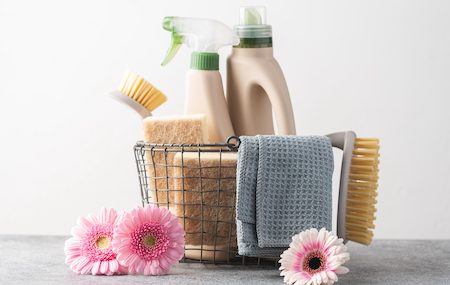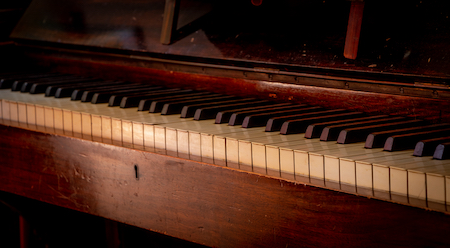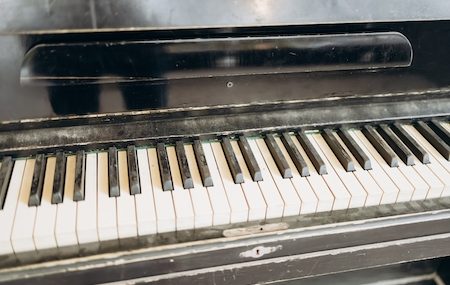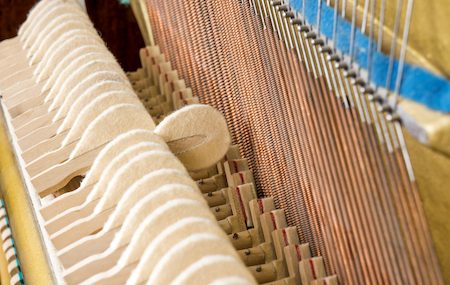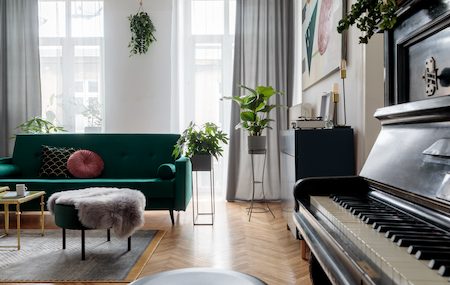The last two years have changed our approach to cleaning. We are more conscious about what we touch and how germs are spread.
That makes any item that’s touched regularly more susceptible to spreading germs. It makes us more consistent in our cleaning methods.
Yet pianos are different from door knobs or desktops. You can’t clean piano keys the way you can a smooth surface. Spray and wipe down a desktop, and you’re ready to go. Spray keys, and you may cause extensive damage to the internal workings of the piano.
Still, you want the surface area clean, germ-free, and reduce the chances of it becoming a super spreader.
What should you do?
First, learn what’s safe and what isn’t.
Hydrogen peroxide is available at any pharmacy, and is safe for piano keys. Simply dampen a cotton pad with hydrogen peroxide and use it to wipe down the keyboard. Wipe from back to front and ensure the pad isn’t saturated, leaving trace amounts of moisture to sit on the surface for long. Follow up with a dry towel to ensure liquids are removed.
Do not use bleach-based disinfectants or any cleaning product with a citrus base. These will damage the keys over time.
For the exterior of your piano, it’s quite easy to keep it clean and germ-free. Using a soft cloth, dampen it with plain water to remove any dust or fingerprints that may occur. Never apply any liquid or cleaning product directly. Instead, spray the cloth first to ensure the piano doesn’t receive too much moisture during the cleaning process.
Do not use solvents or chemicals of any kind. When in doubt, refer directly to the manufacturer to find recommended cleaning and disinfecting products. Or give us a call; as a piano dealer, we can recommend the best ways to keep your piano in good working condition while being germ-free too.
Avoid dampness at all costs. If moisture is allowed to seep down between the keys, it can cause swelling. This prevents the keys from moving, and hampers the movement as you play.
You can have a sanitization station near the piano before playing. Before sitting down, use a hand sanitizer, ensuring that it’s thoroughly rubbed in before touching the keys. Keep it and any other liquids away from the piano – vases, drinks, or other liquid products can ruin the finish and the sound.
Do you practice good hygiene before sitting down to play the piano?
